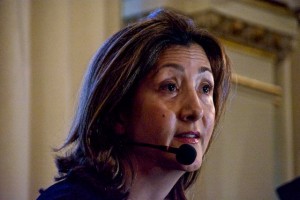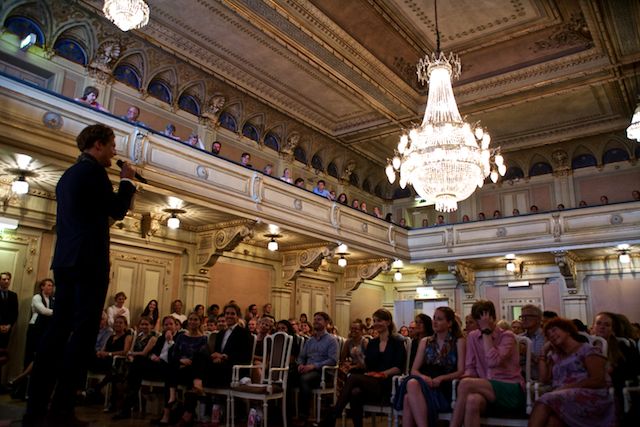An analytic viewpoint on the current Colombian peace process and a commentary on human dignity and principles. That’s Lundagårds chronicler’s thoughts about the Studentafton lecture with Ingrid Betancourt.
It is 7:15 pm in the Grand Hotel’s conference room, and the room is abuzz with the chatter of all the people sitting in the room and up on the balcony. An introduction is given and Ingrid Betancour walks into the room. She and her interviewer, Oskar Jansson, sits down and the room is filled with applause.
 Ingrid Betancour was Studentafton’s guest this Wednesday. The famous former politician had been abducted by Colombia’s largest left-wing guerilla group, FARC, on the way to a presidential rally, and kept hostage for six and a half years in the jungle.
Ingrid Betancour was Studentafton’s guest this Wednesday. The famous former politician had been abducted by Colombia’s largest left-wing guerilla group, FARC, on the way to a presidential rally, and kept hostage for six and a half years in the jungle.
The first question Oskar Jansson asks is what type of a person Ingrid was before her abduction. She states that she was “a tough cookie”; stubborn, opinionated, with a passion to lead and be followed in politics. She says that her days in the jungle made her notice that her first priority was to be a mother, because what she thought about most was being there for her kids, not being active in the political arena.
Her focus on children continued throughout the talk. At one point, she said that even though she had been kidnapped for 6 years, her guards, who were youths her children’s’ age, had been “abducted for life”.
“You can’t leave the FARC,” she continued.
“You can’t say ‘I don’t really like this,’ and go back to peasantry. If you leave, you’re shot.”
When asked about how she thought the ideal peace in Colombia would be, she said that her “flavor of peace would be a country where kids will be kids.” In the same answer, she expressed that she saw Sweden as a good model for how Colombia should be.
Oskar Jansson’s questions were well thought-out, and Betancourt gave long, thoughtful answers. The talk was fluid, and the only brief pause was when Betancourt got emotional thinking of seeing her father for the last time before being abducted.
Ingrid Betancourt’s candid tone continued through the open mic questions, as well. She was straightforward yet kind and respectful in her answers. Her approach made her answers to political questions remarkably human. Being a very visible politician in Colombia at the time of her abduction, she is well aware of how the political balances work. Of her relation to Hugo Chavez, she said that when she met him, she “liked the guy,” humanizing a huge political figure for the audience. Her answers took politics from the handshaking clips we see on the television to a human interaction.
Ingrid Betancourt may be a person with a very uncommon story from very far away from Sweden, but her talk at the Studentafton this Wednesday was accessible to all. It served as a good introduction to South American politics; an analytic viewpoint on the current Colombian peace process; and a commentary on human dignity and principles.
Text: Zeynep Ali
Photo: Jens Hansen







